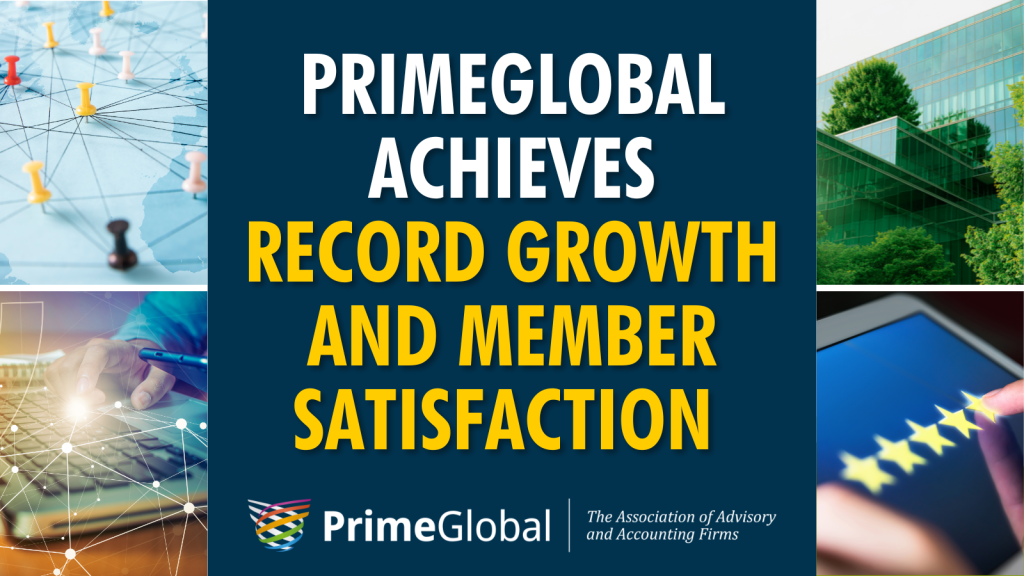Gale Crosley, a US CPA and consultant for accounting firms examines a more joint approach towards accounting firm growth and calls for the end of so-called individual tactics.
If you’ve spent more than five minutes with me – in a seminar, in consultation or reading my articles – you know that I am passionate about strategic practice growth. In this article I take a step back and address the reasons for my conviction.
Strategic growth is a mindful, firm-based approach that contrasts starkly with the notion that a firm can grow sustainably by partners increasing their individual books of business. In my view there is really no other option if you want to expand and thrive in today’s changing global marketplace.
To say the accounting profession came late to practice growth is to understate considerably. After my early years as an auditor in two Big Eight firms, I spent several years at IBM. When I returned to the profession a couple decades later, I assumed that the sophisticated management of growth I observed at Big Blue was typical of public accounting.
In technology, competition was tough and the pace was quick, with obsolete products and services promptly replaced by newer, more appealing ones. It was the epitome of a growth-driven environment.
How wrong I was to imagine that something similar was occurring in public accounting. The corporate world had been honing its growth approaches for decades by 1977, the year Bates v State Bar of Arizona reached the US Supreme Court. That historic ruling, which declared the ban on advertising unconstitutional, set the stage for a global change in the accounting profession.
How well do you really know your competitors?
Access the most comprehensive Company Profiles on the market, powered by GlobalData. Save hours of research. Gain competitive edge.

Thank you!
Your download email will arrive shortly
Not ready to buy yet? Download a free sample
We are confident about the unique quality of our Company Profiles. However, we want you to make the most beneficial decision for your business, so we offer a free sample that you can download by submitting the below form
By GlobalDataDespite the legal outcome US firms remained reluctant to jump into the fray for decades afterward. Selling ourselves did not come naturally and there were few role models to lead the way.
Elsewhere in the world, governments and professional standards groups adopted a patchwork quilt of strictures against proactive growth approaches. This served to dampen the enthusiasm of many firms to embrace professional, strategic growth.
Here in the US and abroad the custom had long been to start one’s own business and socialise with elite members of the community on the golf course or in the country club dining room. We had breakfast with bankers and lunch with lawyers.
With little understanding of strategic growth approaches, the profession fell significantly behind other sectors. That deficit would prove difficult to overcome.
Fast forward to the early 2000s and there was little need to sell our services, even though it was permitted in several countries. That’s because the collapse of Arthur Andersen and other accounting scandals boosted the fortunes of mid-market accounting firms worldwide.
The demise of the iconic firm led to the passage in the US of the Sarbanes-Oxley Act in 2002. The law brought a significant tightening of regulations and a deluge of work for the remaining Big Four, sending a flood of work downstream to middle market firms. There was little need to sharpen growth-related skills when business was washing in over the side.
By 2007, however, the Great Recession began to rear its ugly head, souring previously sweet market conditions. Many firms were caught without a growth plan or philosophy.
Here again, the failure to develop a consistent, scalable growth strategy left firms stranded and struggling.
Where we are today
As we emerge from this historic downturn, we find economic conditions distinct from in the past. Beyond the diminished demand and other fallout of the Great Recession,our markets have become significantly more complex. I liken the change to the dramatic effects of a sandstorm I observed while in Dubai recently. The landscape changes quickly, with peaks and valleys realigned and objects no longer where they once stood.
Among elements currently buffeting our profession: partners of baby boomer age are retiring in record numbers; globalisation is changing the scope of our business; the regulatory environments become increasingly demanding; specialisation is no longer an option, but is now essential for growth in our mature profession; communication platforms have undergone a radical makeover, with engagement in social media now mainstream and expected; and sustainability of individual firms is increasingly in question.
Like a sandstorm blowing across the desert, these elements are realigning our profession. A firm-wide, step-wise approach to growth that remains constant despite market and societal fluctuations is the only way forward.
In order to get there, you need to start by having a heart-to-heart conversation with your partner group about growth and sustainability. Ask the tough questions. Find out if they have the appetite, as a team, to embrace world-class growth in the same way they embrace world-class service delivery.
The alternative is to stick your heads in the sand and pretend that all is as it should be. But that’s no more an option than maintaining relationships with referral sources and calling it a growth strategy.
Gauge the willingness to try a different approach that’s more “we” and less “me.” Then move forward – clear-eyed and committed to the future you desire.
*Gale Crosley, CPA, consults with accounting firms on revenue growth. She was selected one of the Most Recommended Consultants in the Inside Public Accounting BEST OF THE BEST Annual Survey of Firms for nine consecutive years, and one of the Top 100 Most Influential People in Accounting by Accounting Today for eight consecutive years. She is an honors accounting graduate from the University of Akron, Ohio, winner of the Simonetti Distinguished Business Alumni Award, and an Editorial Advisor for the Journal of Accountancy. Most recently she was awarded with the 2014 Hall of Fame Award by a think tank The Advisory Board for he significant contributions to the accounting profession.





